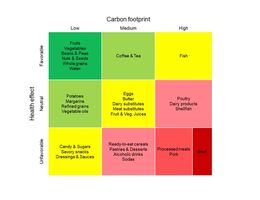

A longitudinal study of various vegetarian diets shows a 12% overall reduced risk of all cancers and strong support for the finding in less-studied, medium-frequency cancers, such as stomach and lymphomas.
Lead author Gary Fraser, MBCHB, PhD, said this is the first study with strong information and sufficient precision to report on the association between various vegetarian diets and risk of some less common cancers.
Researchers found that a vegetarian diet was associated with even greater risk reduction of stomach cancer, as high as 45%, as well as lymphomas by 25%.
Fraser said the study also offered solid evidence confirming previous studies that vegans have lower risks of the common breast and prostate cancers (by about 25%). Further, vegetarian diets overall also offer major risk reduction of colorectal, and stomach cancers, and this report adds new evidence about their lower risk of lymphomas The risk of colorectal cancer was reduced by approximately 20% with a vegetarian diet, he said.
“This is all relatively unique information and possibly the most robust that’s out there concerning cancers such as stomach and lymphoma,” Fraser said. “It may also be pointing the finger at several other cancers — such as lung, ovary, and pancreas — where the evidence from this study was suggestive of lower risk in vegetarians, but did not quite reach the necessary standard to say more.”
Fraser said other cancers, such as uterine, myeloma, myeloid leukemias, or those of the nervous system, gave no hint of protection from diet.
The study, “Longitudinal Associations Between Vegetarian Dietary Habits and Site-Specific Cancers in the Adventist Health Study-2 North American Cohort” was published this month in the American Journal of Clinical Nutrition.
The study, conducted by Loma Linda University Department of Research Affairs, examined data from tens of thousands of Seventh-day Adventists vegetarians and non-vegetarians. Researchers used data from the Adventist Health Study-2, a cohort of nearly 96,000 people who identify as Seventh-day Adventist and lived in the United States and Canada during the study’s baseline recruitment between 2002 and 2007, with follow-up through 2015. Researchers used data from nearly 80,000 people from the study, about half of whom were vegetarian, Fraser said.
The study was funded by Loma Linda University. Funding to establish the original cohort and its data, was provided by the National Cancer Institute and Britain’s World Cancer Research Fund.
That original cohort has been the subject of more than 200 published studies on diet, health, disease, and mortality, Fraser said.
Researchers noted that the study involved comparing vegetarian Adventists to non-vegetarian Adventists, which could indicate the findings would be even more substantial when compared to the general population.
Fraser said previous studies, comparing this population to that from a U.S. census general population suggest that non-vegetarian Adventists have about a 25% risk reduction of all cancers when compared to the general population and that vegetarian Adventists have about a 35% reduction.
“Many of those non-vegetarian Adventist people in this study were still very health-conscious people, so in some ways, it’s amazing that we found anything at all,” Fraser said.
While the new study found overall increased benefits for vegans compared to other vegetarian diets, one exception was that a pescatarian diet was found to have less risk of colorectal cancers compared to other vegetarian diets.


